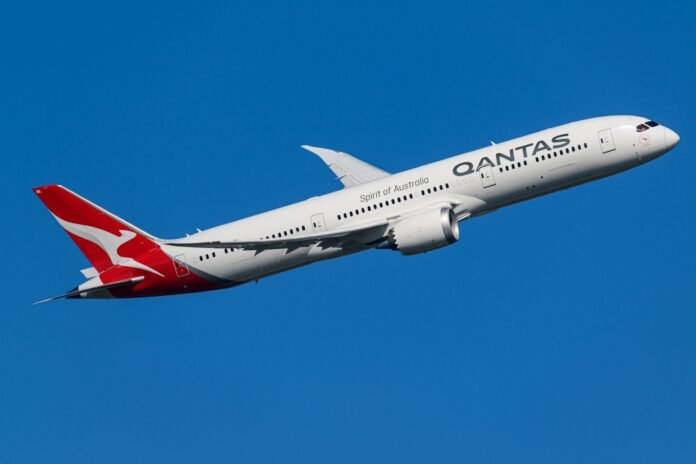Qantas Reduces Executive Bonuses Following Major Cyberattack
SYDNEY — In a significant move reflecting accountability and responsibility, Qantas has announced a reduction in annual bonuses for its senior executives following a cyberattack in July that compromised the personal information of approximately 5.7 million individuals. This decision underscores the airline’s commitment to addressing the serious implications of the breach while maintaining a focus on customer trust and safety.
Pay Reduction Reflecting Shared Responsibility
Despite reporting a robust profit of $1.5 billion in the last fiscal year, Qantas has taken a firm stance on the repercussions of the cyber incident. The airline has opted to reduce short-term bonuses by 15% for both the CEO, Vanessa Hudson, and the Executive Management team. For Hudson, this reduction translates to a significant loss of around $250,000.
John Mullen, Qantas Group Chairman, stated, “While management took immediate action to contain the breach, support customers, and put additional protections in place, in recognition of the seriousness of the incident, we decided to reduce 2024/25 short-term bonuses by 15 percentage points for the CEO and Executive Management.” This decision reflects a collective accountability among the leadership, emphasizing the importance of customer trust and the need for enhanced security measures.
Cyber Attack in July
The cyberattack that prompted this decision is still under investigation. Qantas has reported a troubling increase in social engineering threats and is actively applying lessons learned from this incident to bolster its risk management framework. The breach exposed sensitive information, with 2.8 million customers having their names, email addresses, and Qantas Frequent Flyer numbers leaked. Additionally, 1.7 million other customers had more detailed personal information compromised, including home addresses, dates of birth, phone numbers, meal preferences, and genders.
Fortunately, Qantas representatives have reassured customers that no credit card or passport details were exposed during the breach, and Qantas Frequent Flyer accounts remain secure. This assurance is crucial in maintaining customer confidence in the airline’s commitment to data protection.
The Threat Landscape
The cyberattack on Qantas followed warnings about a targeted campaign against the airline industry by the Scattered Spider cybercriminal group. The hackers from the Shiny Hunters group claimed responsibility for the attacks, which involved exploiting platforms and systems connected to Salesforce. This highlights the evolving nature of cyber threats facing the airline industry and the critical need for robust cybersecurity measures.
In response to these challenges, Qantas is not only focusing on immediate containment but is also committed to implementing additional preventive measures to safeguard customer data in the future. The airline’s proactive approach aims to mitigate risks and enhance its overall security posture.
Conclusion
The decision to reduce executive bonuses at Qantas serves as a powerful reminder of the shared responsibility that comes with leadership, especially in the face of significant challenges such as a cyberattack. As the airline navigates the aftermath of this incident, its commitment to customer safety and data protection will be paramount in rebuilding trust and ensuring a secure travel experience for all passengers. The ongoing investigation and subsequent actions taken by Qantas will be closely watched by industry stakeholders and customers alike, as the airline works to strengthen its defenses against future threats.


